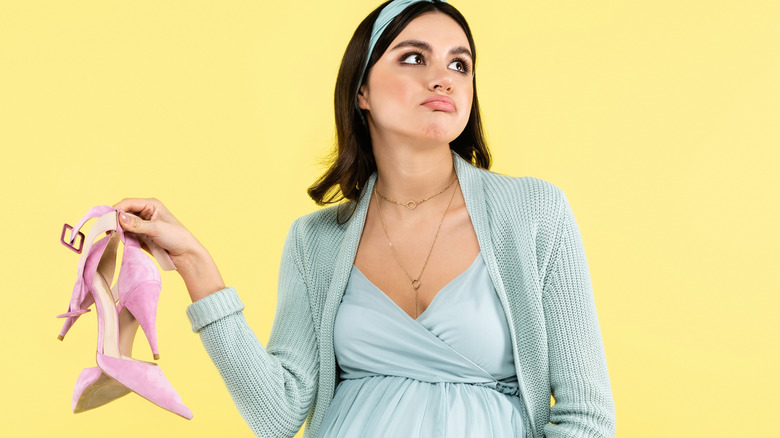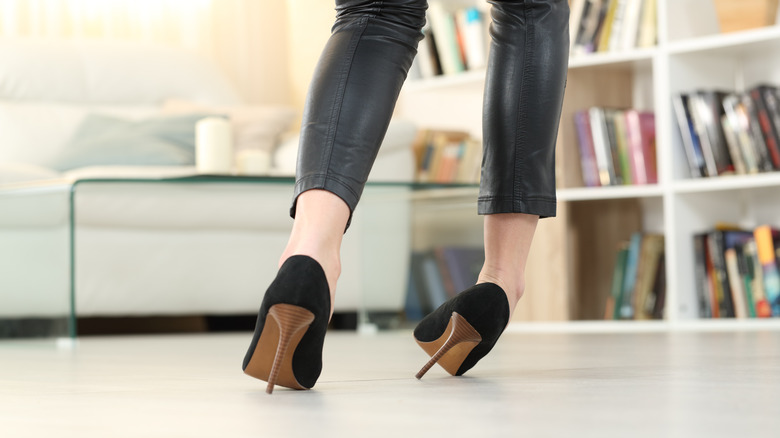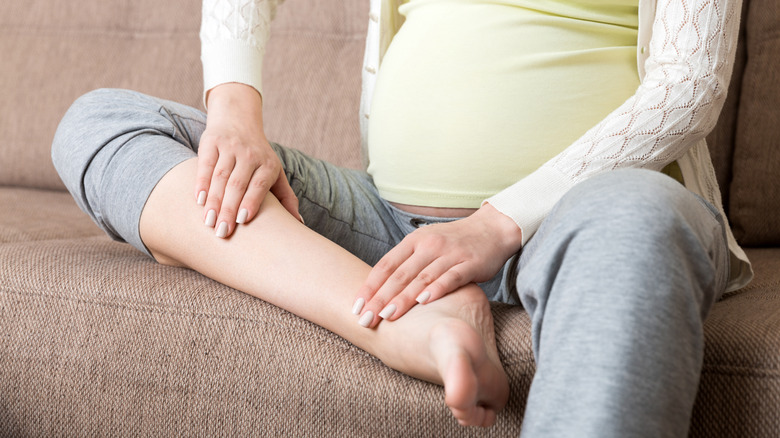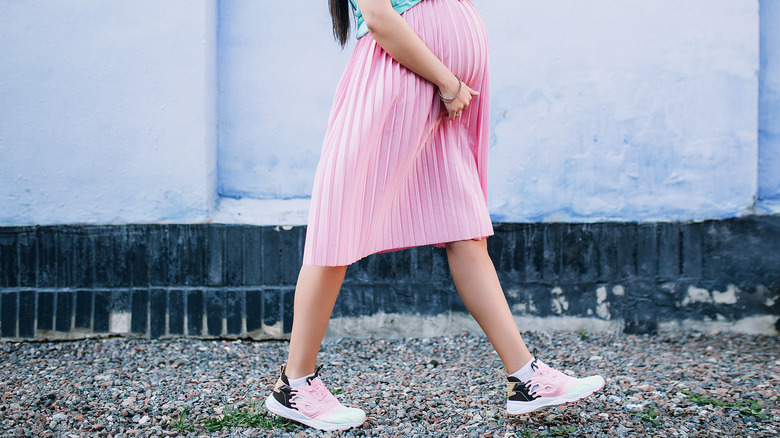Can You Wear High Heels While Pregnant?
Does your body feel totally foreign during pregnancy? If so, you're not alone. The Office on Women's Health lists several pregnancy-related changes that can impact your relationship with your body, from gaining weight to developing acne. You may hardly recognize the skin you're in as you grow a little life inside your belly.
To hold on to your pre-pregnancy look, you might aspire to maintain your personal style à la pregnant Rihanna, who turned heads in her "experimental high-fashion materinity looks," according to Harper's Baazar. However, there are numerous things you should and shouldn't do when expecting, and it's no surprise that some of those rules may relate to what you wear.
As your baby bump grows, you'll need to hit up the maternity section when shopping for clothes, or at least embrace the oversized trend for a while. But when it comes to high heels, can you continue strutting around in your favorite pairs, or should you spend nine months in flats?
High heels may lead to dangerous falls during pregnancy
During Meghan Markle's first pregnancy, critics attacked the duchess for wearing heels while pregnant. But OBGYN Alyssa Dweck told Insider that Markle's sartorial choice was only dangerous in the event that she fell and hit her stomach.
However, it's important to note that pregnant women are already at an increased risk of falling. According to Healthline, the body's center of gravity shifts during pregnancy, which can impact balance while walking, especially when in heels. Verywell Family also notes that a growing belly, weight gain, and softening joints may make falls more likely during pregnancy. Such a fall could potentially injure your developing baby, especially in the third trimester.
If you always have someone close by to catch you in case you fall, or if you'll mostly be sitting, you may continue rocking your favorite stilettos. If not, it may be best to keep your feet on the ground for your and your baby's safety.
High heels can be especially painful during pregnancy
You may be confident in your ability to stay balanced while walking in sky-high heels, but another issue to be aware of during pregnancy is pain and discomfort. Standford Medicine explains the changes that occur in the body while growing your bundle of joy can result in a number of new aches, and wearing heels only exacerbates these pains.
For example, back pain is at an all-time high for many during pregnancy due to a change in posture and the loosening of ligaments. Adding heels into the mix forces the back to arch even more, causing aches in your lower back.
According to Healthline, the legs are also under extra stress during pregnancy. Weight gain, swelling, and — you guessed it — improper footwear can trigger pain in the calves, feet, and hamstrings. Rather than giving your tired legs a break while pregnant, heeled shoes only make them work harder.
Wear these shoes instead while pregnant
If you're considering breaking up with your high heels (at least for now) but still want to look and feel confident while pregnant, have no fear! There are plenty of other footwear options that are easy to walk in, feel comfortable on your swollen feet, and look good.
For one, don't be afraid to buy a size up when shopping for shoes. Podiatrist Mark Mendeszoon told Verywell Family that the feet take on additional stress during pregnancy and commonly swell in size, a change that can last even after your baby is born. On that note, even if you've never bought wide shoe sizes before, you might need to now.
The Bump also recommends shoes that are flexible as your feet change and swell each day, yet are supportive enough to accommodate your arches. During pregnancy, arches may fall, making support more crucial than ever. A no-brainer option is a lightweight running shoe or supportive sneaker. However, some sandals, flats, and boots can also be great options, as long as they're not too heavy on your feet and they offer comfortable insoles.
For those who are struggling to part ways with their high heels, Healthline says heels can be okay if they're low, have non-slip bottoms, and offer arch support. They should also be comfortable to walk in and expand as your feet swell. If they don't, you might find yourself reaching for the running shoes anyway.



